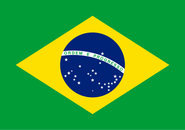Product

July 24, 2025
August scrap price direction unclear on 'reciprocal' tariff uncertainty
Written by Stephen Miller
The August domestic scrap market has yielded few hints about its direction. Most market players are hedging their forecasts until tariffs rates on imported raw materials are clear. Even then, some are positing that the August market will trade sideways.
Recall that Section 232 tariffs of 50% apply to both finished and semi-finished steel. Raw materials such as pig iron and pellets don’t fall under Section 232.
But they face “reciprocal” tariffs. And Brazil, a major supplier of metallics to the US, currently faces a 50% reciprocal tariff that is slated to go into effect on Aug. 1.
SMU heard from a steel executive who thinks scrap will “behave” in August due to tariff uncertainty and the summer doldrums. But he predicts prices will shoot up in September if the 50% tariffs on Brazilian pig iron are confirmed. Tariffs on imported iron ore pellets could also play a role in scrap increases.
The latest news from Brazil is that at least one US buyer is going ahead with the shipment of an August cargo. This despite the threatened 50% being implemented on Aug. 1 and the Trump administration previously showing no leniency to vessels on the water.
In a way, this is not surprising because EAF mills need pig iron for hot-rolled (HR) coil production. What is unclear is whether US buyers will continue to place orders beyond what they have already contracted. There have been no new bookings heard so far. And there are some unconfirmed reports that a large US buyer has canceled one or two cargoes that had been scheduled.
Based on the price paid for August cargoes of approximately $400 per metric ton (mt) FOB Brazil, the 50% tariff would increase the imported price by $200/mt to $600/mt FOB. You’d then add $30/mt in freight to Gulf Coast ports. Inland freight and other costs to mills upriver are estimated to be $30-40/mt depending upon location. This would increase pig iron costs to about $665/mt, or $675 per gross ton (gt), on average. The July level for #1 Busheling was $430/gt, and so such a potentially high pig iron price would be a hard pill to swallow for US steelmakers.
At this juncture, it is hard to say what impact potential tariffs on Brazilian pig iron will have on August scrap prices in general. As it stands, it seems likely that prime scrap buying will increase for August. There might not be too much impact on obsolescent grades.
There does not seem to be any pressure on domestic prices for August from the export market. The prices have not moved up or down for several weeks. The most recent price for a US-origin cargo of HMS 80/20 destined for Turkey traded at $347/mt CFR, which is sideways from earlier buys.
A broker in the Central region said the domestic scrap market should trade sideways for August. Although scale traffic is down, dealers will sell what they have at this stage. There is no point in holding anything back. If the market rises, they will continue to sell into it. They’ll do the same should prices go down.
SMU spoke with a trader located in Chicago who said he has heard some price increases for shredder feed. He also said he couldn’t imagine #1 busheling and bundles wouldn’t be affected for August shipment. But he has not heard of any price increases thus far.







